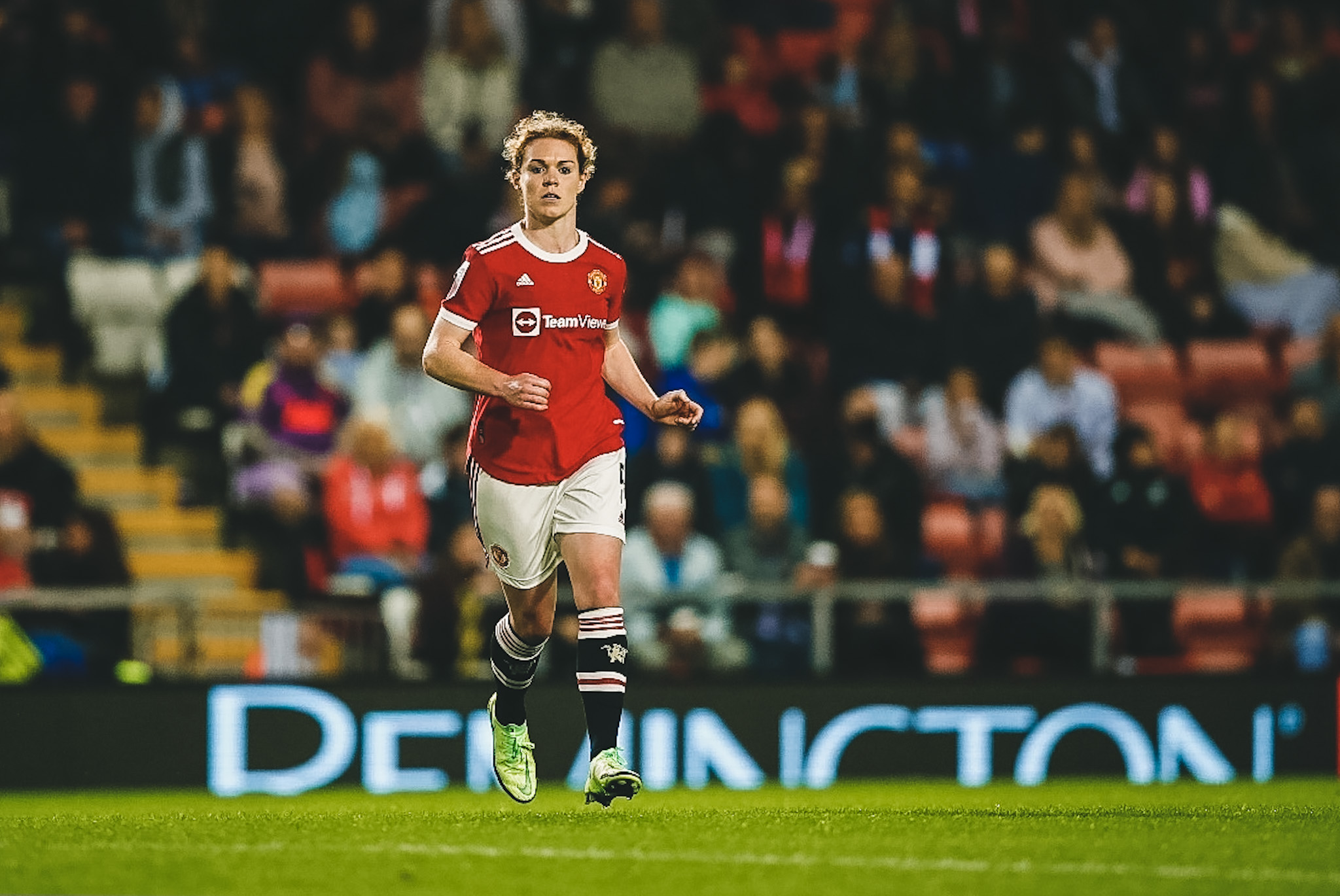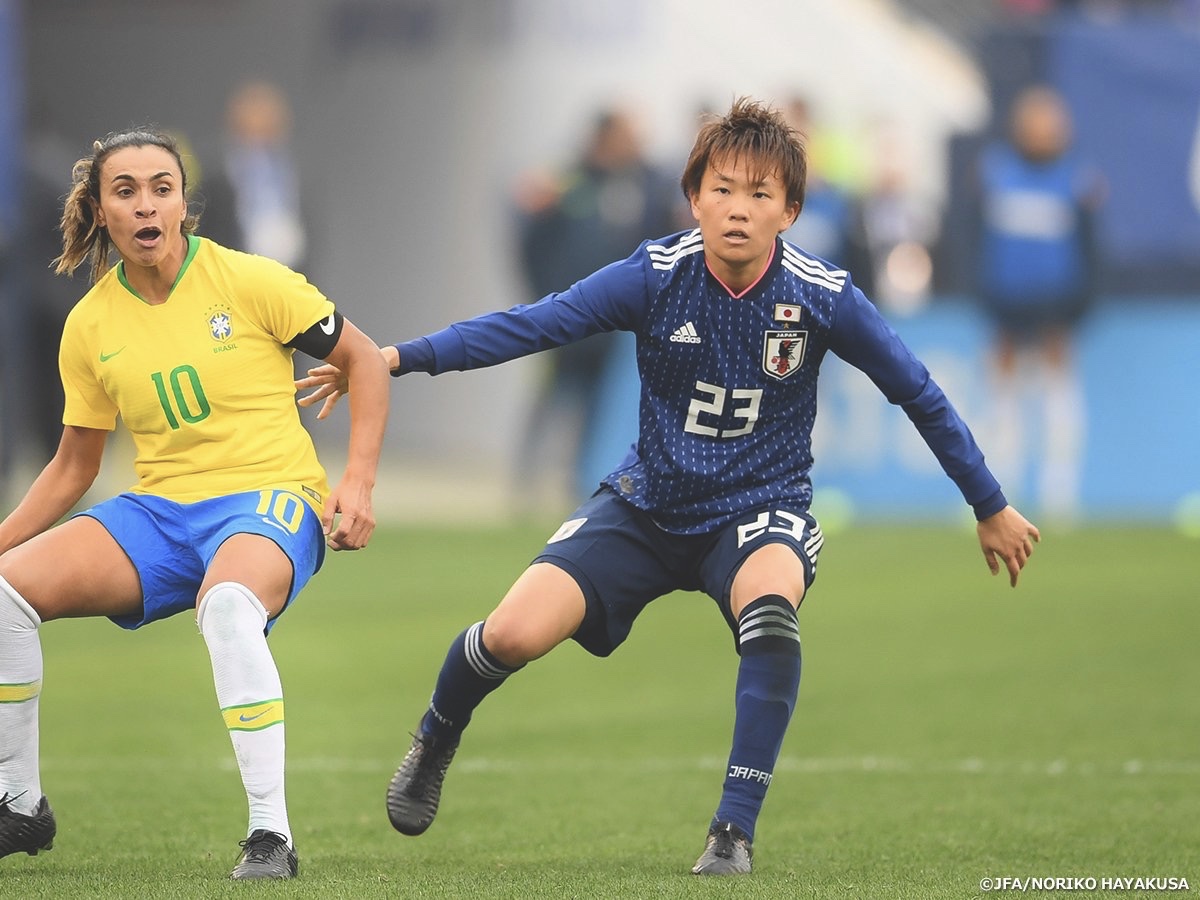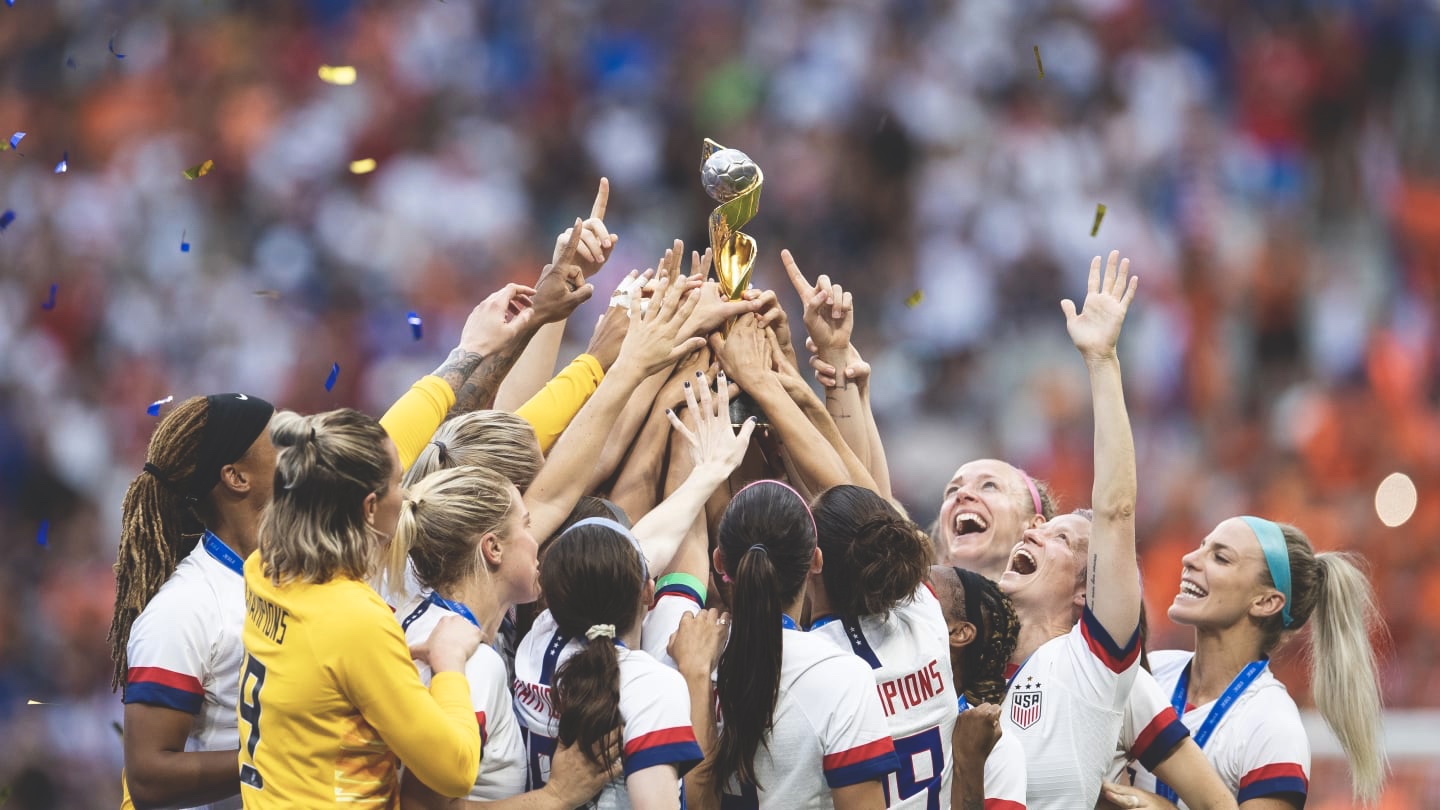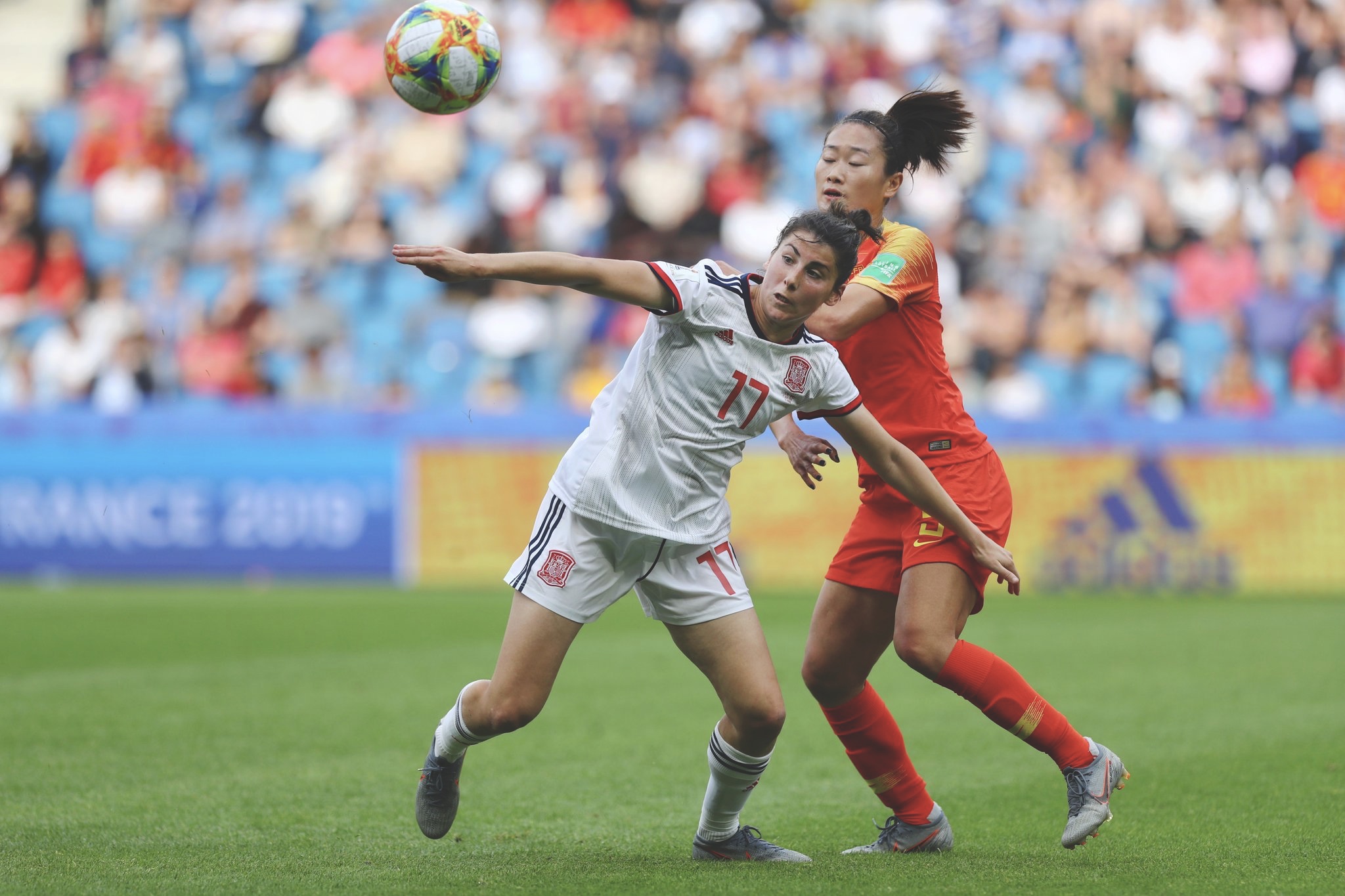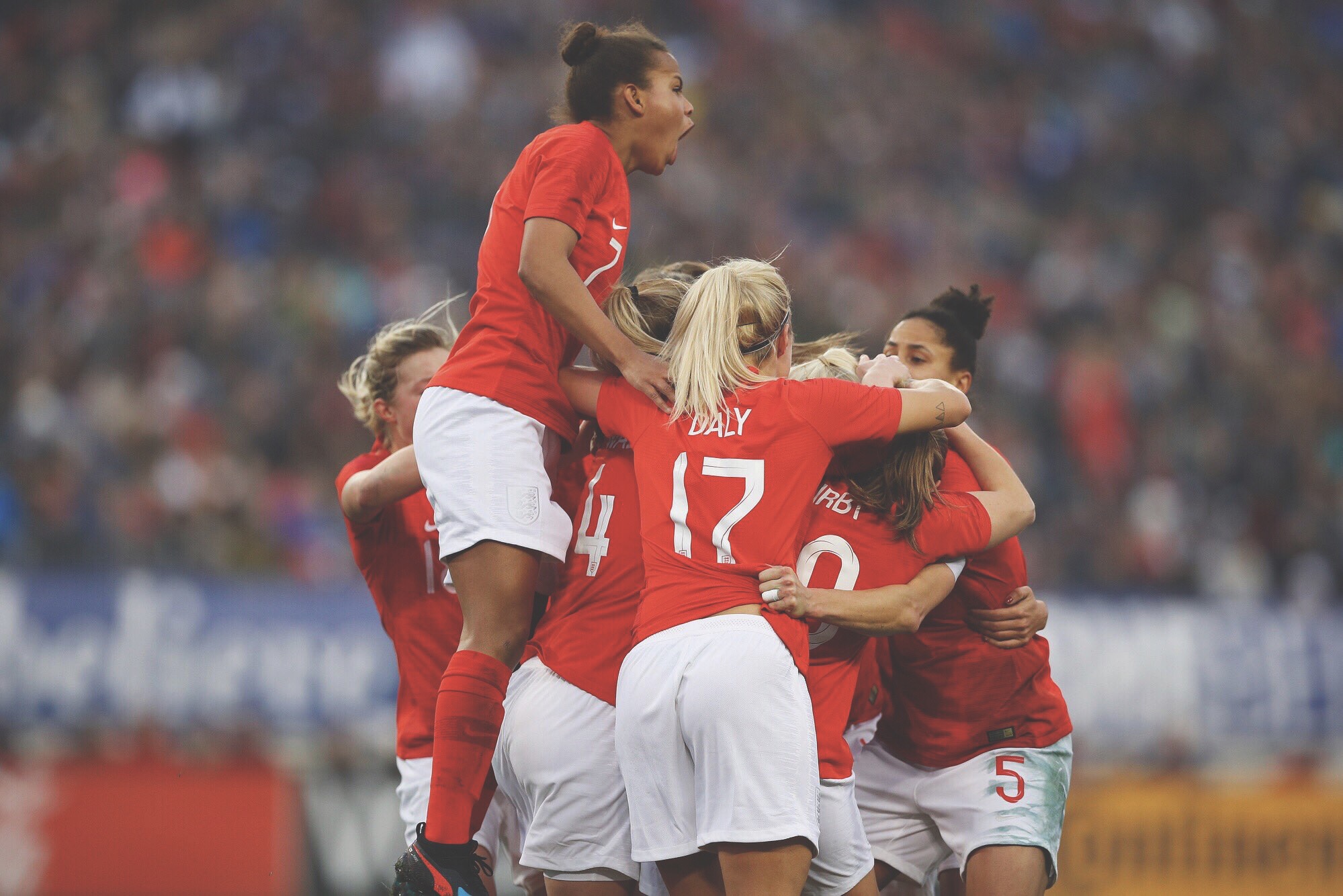Manchester United defender Aoife Mannion looks likely to receive a call-up to the Republic of Ireland squad in the near future.
Speaking on The Green Machine podcast last month, Ireland boss Vera Pauw discussed the fact that many players born overseas have shown an interest in donning the green jersey since the country qualified for this summer’s World Cup, mentioning Mannion specifically.
“They have to be really, really better than what we have — and indeed Aoife Mannion is one of them. She’s coming back from an ACL injury so we’re hoping that she will be ready, but she’s in the pipeline, we’re dealing with her eligibility.”
Mannion was born in Solihull to Irish parents. She played for England from U15 up to U23 level and played every minute of both the 2013 UEFA Women’s Under-19 Championship and the 2014 FIFA U-20 Women’s World Cup. She was called up to England’s senior squad twice in 2019 but did not feature on either occasion, making her eligible to represent Ireland.
However, some are of the opinion that the focus should be on homegrown talent. They argue that there is a tendency for English-born players with Irish ancestry to show no interest in their eligibility until it becomes clear they won’t be selected to play for England.
The so-called ‘Granny Rule’ has been utilised in Irish football since the 1960s, but really came into its own during Jack Charlton’s decade-long reign as men’s team manager (1986-96). It’s been a running joke over the years that most of the Ireland team is English (which isn’t actually true these days). But that didn’t stop Irish fans taking these players to their hearts. It helped that the country qualified for two World Cups and one European Championship under Charlton, but also that English-born players such as Tony Cascarino and John Aldridge openly expressed their pride at representing Ireland. As such, we now expect everyone who wears our shirt to say they always dreamed of playing for Ireland and no one else. It’s romantic, after all.
But is it realistic? The last few years have seen two current England men’s internationals — Jack Grealish and Declan Rice — opt for their birth country at senior level having played for Ireland’s underage sides. In the case of Rice, the fact that he had already earned three senior Ireland caps (albeit in friendlies) was enough to leave Irish football fans incensed by his change of heart and brand him a ‘traitor’.
Rice’s explanation that it wasn’t an easy decision as he considered himself to be of “mixed nationality” wasn’t enough to placate them, nor was his assurance that his “pride at wearing the Irish shirt was always 100 per cent genuine”. But looking at things objectively, it seems a bit unfair to expect players born and raised in England not to be proud of their Englishness, or to assume that their pride in their Irish heritage isn’t equally genuine. Both things can be true at the same time.
Rice is third-generation Irish, which makes the vitriol levelled at him seem even more bizarre, but Aoife Mannion’s connection — via both of her parents — is even closer. As Vera Pauw explained on The Green Machine podcast, players born overseas will only be considered for Ireland call-ups if they have “a very strong relationship” with the country, which Mannion does. As a child, she owned some Ireland football shirts and one of her heroes was Roy Keane. She also played Gaelic football growing up. She recently spent Christmas in Ireland, where her grandparents still live, and ran some training sessions for girls’ teams in Galway.
It’s clear that she takes pride in her roots. But she shouldn’t have to apologise for accepting those prior England call-ups, or for considering how declaring for Ireland could potentially benefit her career. Pride counts for a lot, but footballers only get one career and they have to make decisions that work for them. Let’s be honest: when you’re 27 with two ACL injuries behind you and the chance arises to play in a World Cup, you’re going to grab it.
I’ve seen comments suggesting that eligible players born overseas should be considered post-World Cup, and that getting them on board for the tournament runs the risk of damaging squad morale. Why should they potentially be picked for games over those who played their part in securing qualification? I disagree. Surely it makes sense to strengthen wherever you can in preparation for your first major finals? As highlighted by Pauw, Mannion is only being considered because she is a really good player. It doesn’t mean other really good players will be sidelined, if they’ve performed well enough to earn a place in the squad. As to whether Mannion’s selection would be bad for morale, I really don’t think so. As Pauw was keen to emphasise in her podcast interview: “Every single player would want someone who could make us stronger to come in.”
One thing is for sure: Aoife will give everything for the cause if and when she joins up with the Girls in Green, and I have no doubt most Irish fans will welcome her with open arms.
Photo: @AoifeMannion_





